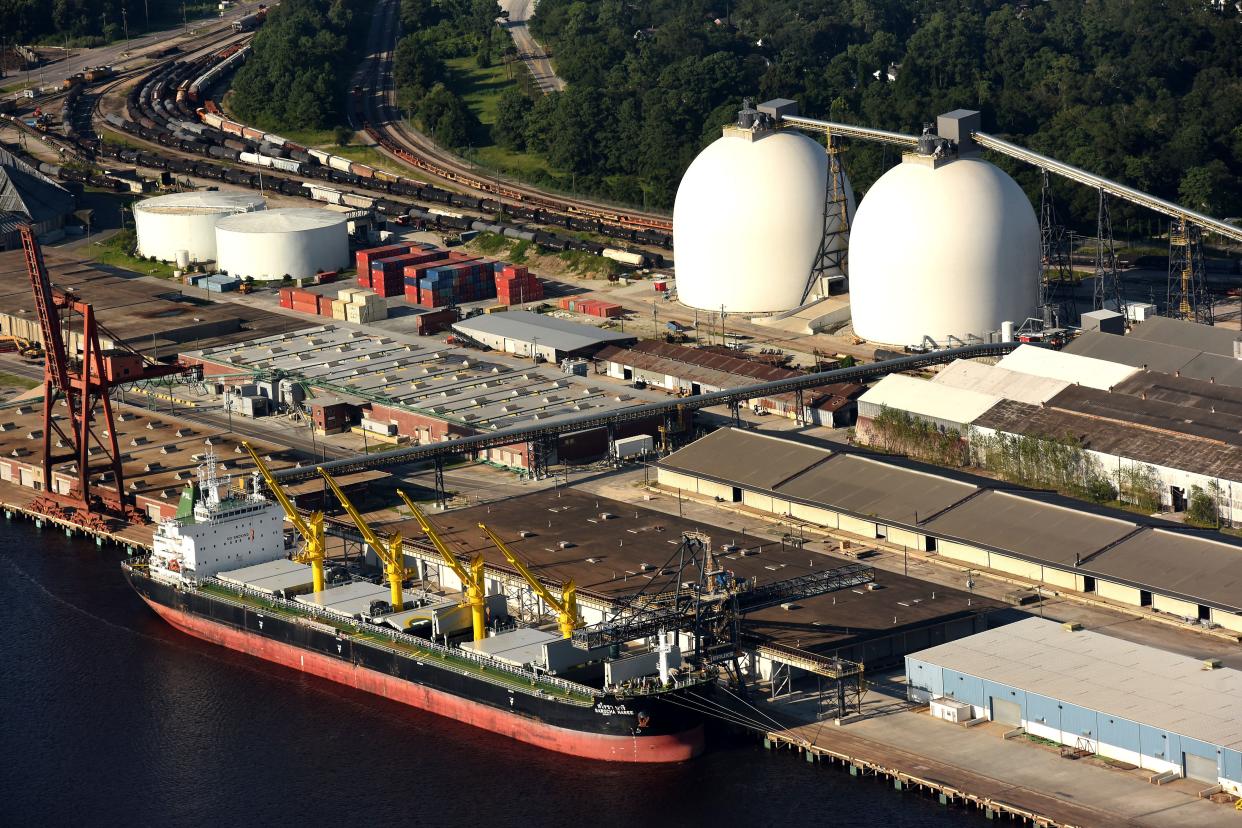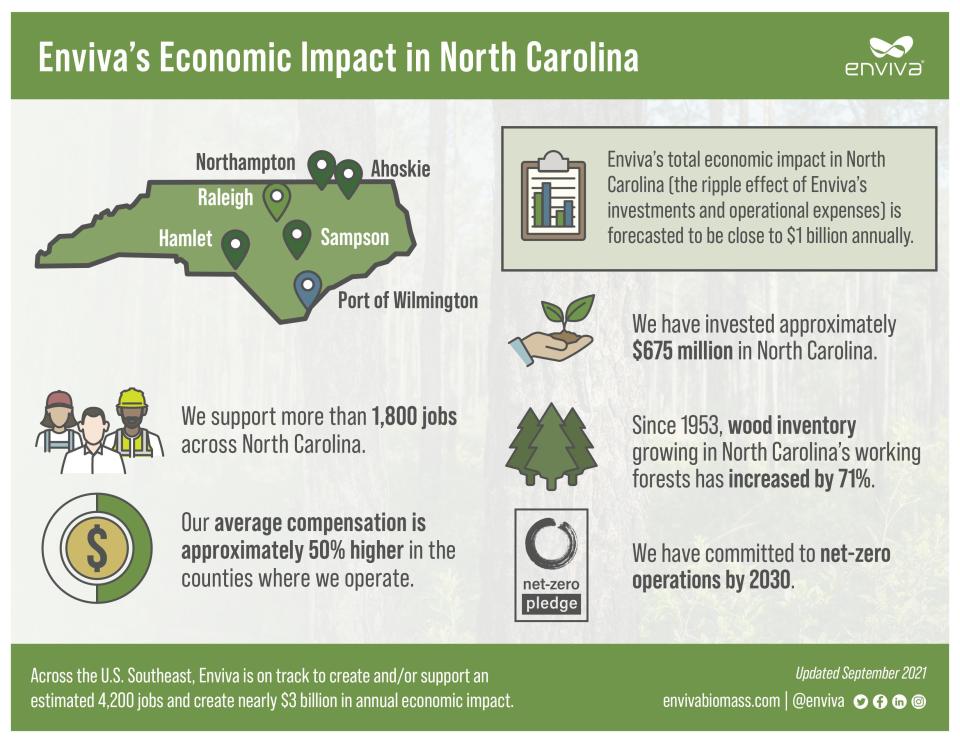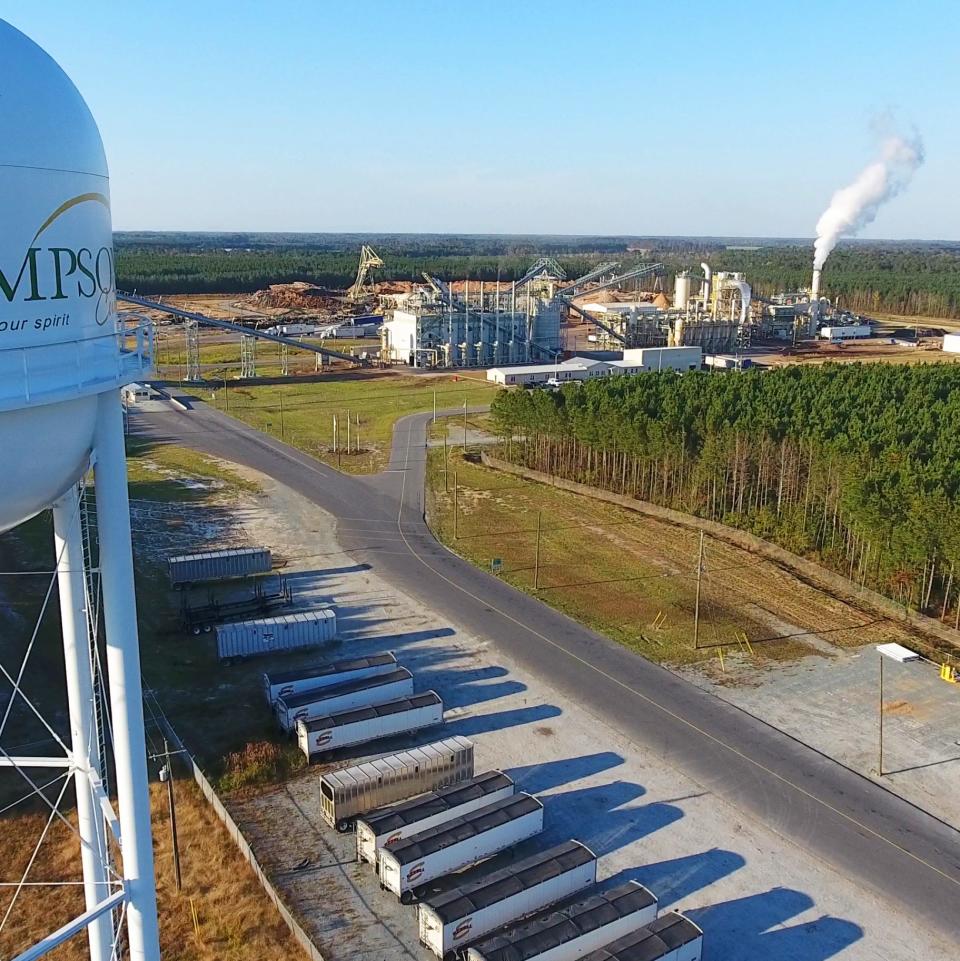Wood pellet giant with major operations in Eastern NC faces a growing financial crisis

A wood-to-energy company that has provided many vital jobs for rural Southern communities, including in Eastern North Carolina, but has also become a lightning rod for criticism from environmental groups is in severe financial trouble that could lead it into bankruptcy.
Maryland-based Enviva, the world's largest wood pellet manufacturer, has seen its stock price melt down over the past year, from more than $60 in fall 2022 − and $80 earlier that year − to under $1.50 a share on Monday. That has seen the company's value chopped from more than $3.5 billion last year to just over $100 million today.
The company's financial woes are largely due to collapsing prices for wood pellets, meaning the company is making less money even though it's selling more pellets than ever before. With Enviva locked into several long-term contracts with customers at low prices, losses could continue to mount unless the company is able to renegotiate the agreements. Company officials also blame high interest rates and operational issues at some of its plants for adding to its financial woes.
RISE OF THE DOMES 17-story dome goes up at port
Along with alarm bells set off by the the $85 million loss in the third quarter, up from $18.3 million in third-quarter 2022, Enviva also suspended its dividend earlier this year, announced it would delay completion of one of its new pellet plants in Mississippi, and hired a new interim CEO "as the company focuses on executing a multi-faceted transformation plan," according to its third-quarter earnings report.
With the company expecting fourth quarter earnings to be even worse, Enviva officials announced they have hired outside advisory firms to perform a comprehensive review of the company's capital structure amid worries that it won't be able to continue to operate in its current form.

CHOPPED DOWN Why has the stock of wood pellet producer Enviva fallen 85% in a year?
Fitch Ratings, one of the country's leading financial rating companies, has downgraded Enviva's credit rating to Rating Watch Negative (RWN), commonly known as junk grade.
"The downgrade of the IDR to 'CCC-' reflects a significant and material decline in earnings and cashflows versus prior expectations and a substantial increase in the possibility of default," Fitch states in a Nov. 13 report. "The RWN reflects the fact that absent an unexpected and significant improvement in wood pellet prices this year, or an unanticipated equity cure, or success in renegotiating existing contracts with customers including restructuring of its 4Q22 transaction, Fitch expects Enviva will likely breach its covenants under its secured credit facility as soon as Dec. 31, 2023."
The company didn't respond to a request for comment.
Environmental, emission concerns
Enviva, which supplies European and Asian utilities with wood pellets as an alternative to burning dirty coal, has long been a target for environmentalists. They question the alleged sustainability value of chopping down trees in the U.S. South, processing them and then shipping the pellets thousands of miles to burn as a "clean" fuel source for power plants.

PELLET-POWERED PLANES? Could wood from NC forests soon be fueling your next airline flight?
They also blame European countries for encouraging the industry, fueling its growth by "greenwashing" its own energy credentials by incentivizing the use of biomass − like wood pellets − as a clean, renewable fuel source for power instead of dirtier fossil fuels like coal, oil or natural gas. According to a website that tracks power generation of Britain's National Grid, about 7% of the United Kingdom's power is generated from burning biomass.
Enviva also has faced environmental justice questions over its logging practices and emissions from pellet production, since many of the company's operations are located in low-income and minority communities.
Some Southern states, including North Carolina, have embraced the company's growth and supported it with incentives, seeing it as a way to drive economic development in rural areas where business and job opportunities can often be few and far between.
According to Enviva, the company supports more than 1,800 jobs in mostly rural North Carolina at its four wood pellet production plants and Port of Wilmington facility and has invested more than $675 million in the state. Facilities are also located in six other Southeastern U.S. states, with several more plants planned.

Reporter Gareth McGrath can be reached at GMcGrath@Gannett.com or @GarethMcGrathSN on Twitter. This story was produced with financial support from 1Earth Fund and the Prentice Foundation. The USA TODAY Network maintains full editorial control of the work.
This article originally appeared on Wilmington StarNews: Wood pellet giant Enviva with major operations in NC faces financial woes

